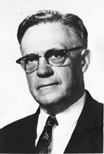Chaitan Khosla
Stanford University
Standford CA
Assembly Line Biosynthesis of Polyketide Antibiotics
Abstract
Many complex natural products are synthesized by multi-enzyme systems that operate as assembly lines. Their apparently modular architecture has opened the door to biosynthetic engineering of new natural products by rationally manipulating the DNA encoding these megasynthases. Understanding the structures and mechanisms of these assembly lines represents a challenging and exciting frontier in multifunctional catalysis.
Bio
CHAITAN KHOSLA (Professor in the Departments of Chemistry and Chemical Engineering at Stanford University) received his PhD in 1990 at Caltech. After completing postdoctoral studies at the John Innes Centre in the UK, he joined Stanford University in 1992. Over the past two decades, his research on polyketide synthases has opened the door to fundamentally new approaches for biosynthetic engineering of antibiotics. More recently, he has also investigated celiac sprue pathogenesis with the goal of developing therapies for this widespread but overlooked disease. He has co-authored over 250 publications and 50 U.S. patents, and is the recipient of several awards and honors including the National Science Foundation Young Investigator Award; the David and Lucile Packard Fellowship for Science and Engineering; the Allan P. Colburn Award and the Professional Progress Award from the American Institute of Chemical Engineers; the Eli Lilly Award in Biological Chemistry, the Pure Chemistry Award, and Arthur C. Cope Scholar Award from the American Chemical Society; and the Alan T. Waterman Award from the National Science Foundation. He is an elected member of the American Academy for Arts and Science and the National Academy of Engineering.
Please see Dr. Khosla's website here

